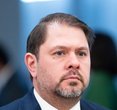
Russia'S Controversial Plan: Age Checks For Online Access

Russia's New Age Verification Push
In a move that's turning heads, Russian lawmakers have rolled out a proposal to enforce age verification for accessing online adult content. The plan? Use the nation’s e-government services system, ESIA, which ties into the federal biometric identification platform. This initiative has many worried about losing their online anonymity.
Yevgeny Masharov from the Russian Civic Chamber has flagged the issue of teenagers accessing adult content filled with explicit language, violence, and “antisocial behavior.” He believes the solution lies in validating user identities using official documents like passports and driver's licenses. "The sooner we act, the less our minors will fall prey to harmful elements on the internet," Masharov emphasized in a recent interview.
Broader Concerns and Legislative Support
It’s not just adult content in the spotlight. The initiative aims to shield minors from online threats like scammers, potentially harmful interactions, and even hostile intelligence agencies. Anton Nemkin, a State Duma deputy and former FSB member, supports the move. He highlights that Russia is already building a digital identification framework, with the Gosuslugi portal and ESIA at its core. These tools, he suggests, can verify age without directly exposing passport data to third-party sites.
“A digital identification infrastructure is already being developed in our country,” Nemkin stated. “These tools could be used to verify age without directly transmitting passport data to third-party platforms.”
Andrei Svintsov, another State Duma member, goes a step further, predicting a future where online anonymity will phase out entirely. "Every internet user will need a specialized identifier for access," he claims, anticipating a new era of digital transparency.
Activists Raise the Alarm
But not everyone is on board. Activists and legal pros like Sarkis Darbinyan argue that this could just be another step toward more state control over the internet. Criticizing past censorship measures, Darbinyan remarked, "Russia’s internet censorship began under the guise of protecting children, but it's led to a sweeping increase in blocked sites and stringent state controls."
The debate rages on amid a backdrop of tightened online regulations in Russia. According to President Vladimir Putin's Information Society Strategy, there’s a push for measures against "anonymity” and “impunity" online. With growing scrutiny, it’s clear the conversation around age verification and privacy is far from over.















